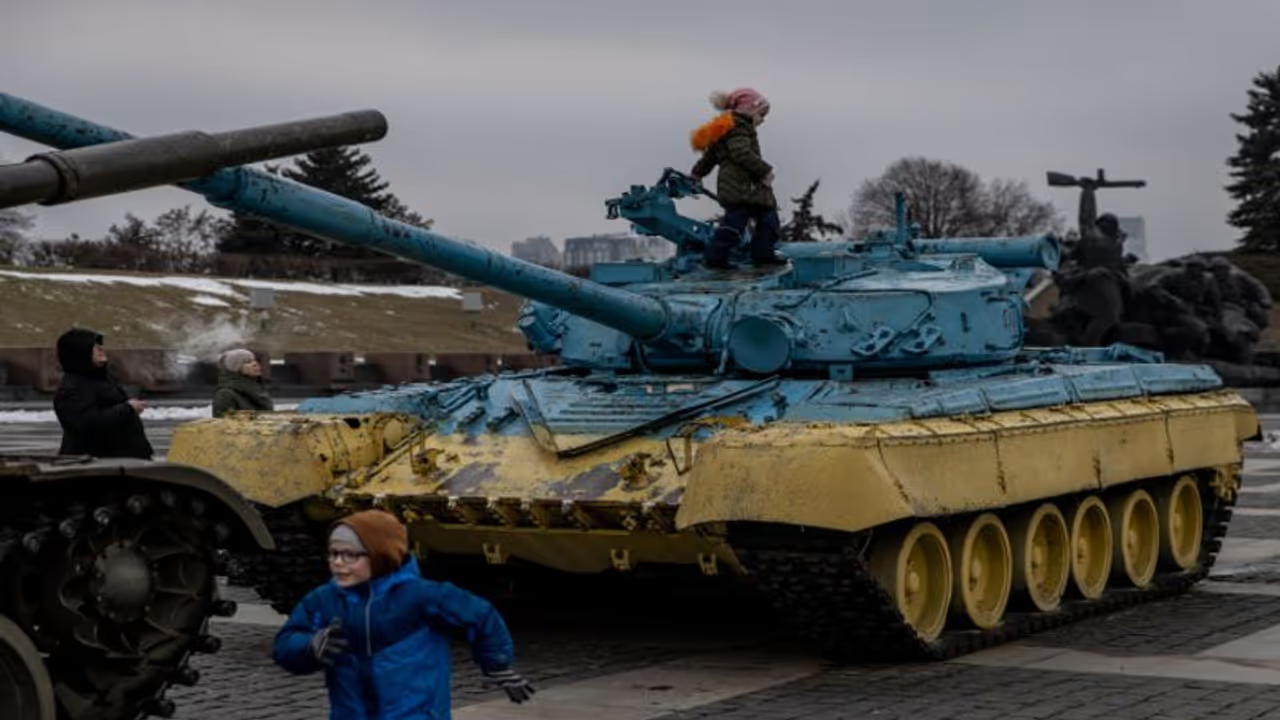The Russian invasion of Ukraine has put several states in the Middle East in a very difficult position. On the one hand, they cannot openly condone aggression and the invasion of an independent country by a powerful neighbour and so they must speak against it (without angering Moscow), and on the other, they do not want to put at risk their mutually beneficial relations with Russia by imposing sanctions.
The ongoing war between Russia and Ukraine has entered its 19th day today. Russia escalated attacks in western Ukraine on Sunday with a deadly airstrike on a military base where Ukrainian troops had trained with NATO forces, bringing the conflict closer to Poland and other members of the bloc.

The Russian invasion of Ukraine has put several states in the Middle East in a very difficult position. On the one hand, they cannot openly condone aggression and the invasion of an independent country by a powerful neighbour and so they must speak against it (without angering Moscow), and on the other, they do not want to put at risk their mutually beneficial relations with Russia by imposing sanctions.
Israel and the Gulf countries are walking the same tightrope. Over the past decade they’ve concluded that Washington was no longer fully reliable, and have sought to diversify their strategic options.
So, these countries are engaging in the delicate balancing act of verbally condemning the invasion and at the same time refrain from joining the economic and other sanctions imposed on Moscow by the West, news agency ANI reported.
Except for Syria and Iran - which supported Russia or blamed the war on NATO- almost all countries of the Middle East, have disappointed the United States, the European Union, Canada, and the West in general, on the issue of imposing sanctions on Russia and so far, resisted calls to increase oil and natural gas production to alleviate the problems Europe is currently facing.
According to the influential Politico journalism company, Finland, Latvia, Estonia, Bulgaria, Slovakia, Croatia, and the Czech Republic got more than two-thirds of their gas from Russia in 2020, while Germany, Austria, Greece, Italy, Lithuania, Poland, Hungary and Slovenia relied on Russia for more than 40 per cent of their gas, ANI reported.
If Russia cuts gas supplies in retaliation to the sanctions imposed by the US and the European Union, all the countries above will face a huge energy problem, and what is more at a time when oil prices have hit their highest level in more than a decade.
So, Washington and Brussels turned their attention to the United Arab Emirates, Qatar and Saudi Arabia, hoping that these countries and the Organization of Petroleum Producing Countries (OPEC) as a whole would substantially raise their production in order to cover the energy shortfall in Europe and keep in check the soaring energy prices, the report added.
They were in for a surprise. OPEC + countries, including the UAE, Saudi Arabia and Qatar, have refused to increase their production and decided to stick to a deal previously agreed between member states.
Although the UAE is generally seen as a pro-western Gulf nation, it cooperates closely with Russia, particularly in the framework of OPEC + which in addition to the traditional members includes Russia.
